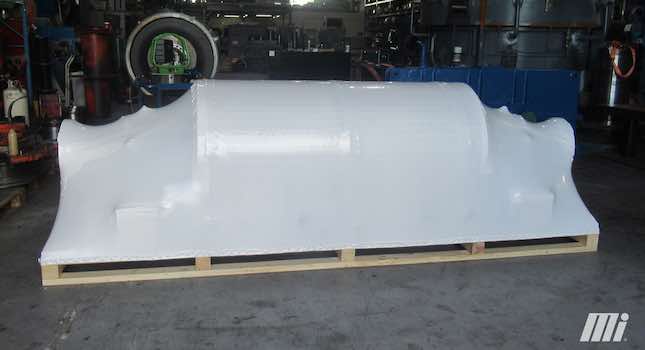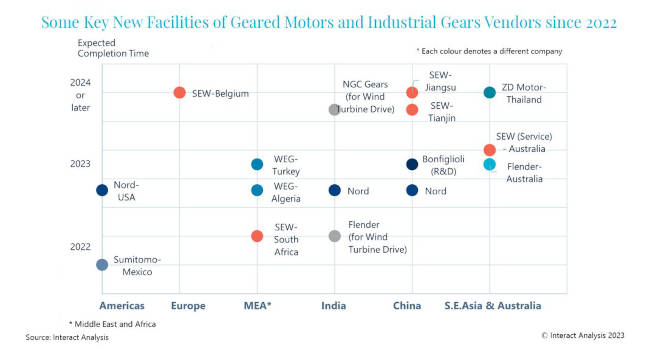Chemical plant compressors can be part of very complex and reactive process gas handling systems that are designed to drive and isolate the process, protect the environment and the people surrounding it.
Chemical plant compressors can be part of very complex and reactive process gas handling systems that are designed to drive and isolate the process, protect the environment and the people surrounding it. To maintain optimum performance of compressors, as well as protect the environment and employees, plant managers must use the right lubricant.
Oils are not interchangeable: gear oil is not hydraulic oil and spindle oil is not compressor oil. Each has very different properties and can be customized to meet the needs of a specific industry and application. Improper selection can have severe consequences to quality and production — especially where contact between process stream and lubricant may occur.
Two of the key components of finished lubricants are base oil and additive package. While the base oil is very important for compatibility with the application, it is often the additive package that determines a lubricant’s success in demanding applications.
Understanding additives
Depending on the conditions in which they are expected to perform, compressor oils may have completely different additive packages with various rust and oxidation inhibitors. Motor oils are formulated with detergents and dispersants among other additives not found in most other oils. They bring no useful benefits to compressor applications, and the additional additives may mask or cause problems. Many industrial processes are not thought to experience major problematic conditions because the process is, for the most part, inert. This is the case for standard compressors, which are compressing air for general plant use.
Additives are chemicals added to base oils to either enhance properties or impart properties to the base oil that it does not inherently have. Additives must be carefully chosen based on the intended application and environment. As with any other chemical, additives have the potential to react with other chemicals they encounter. While lubricant formulators can manage and control additive interactions of a given lubricant’s additive package, the end-user must ensure that active or harsh chemicals that may contact the lubricant will not cause undesirable reactions that may lead to lubricant degradation or process contamination.
Information on a lubricant’s base oil is typically well published or advertised, but the additive package often goes overlooked, making this critical component easy to ignore in the lubricant selection process. Without knowledge of the additive package, the end user relies on brand familiarity or trust. This can be a serious mistake, as the additive package can have a significant impact on performance.
Compressors and vacuum pumps used in process gas streams consisting of active chemistry such as anhydrous hydrochloric acid or methyl chloride can benefit from specialty lubricants that are formulated to serve in harsh chemical service. These lubricants are free of most additives found in multi-purpose oils or motor oils. Even oils labeled as compressor or vacuum pump oils may have additives that will react adversely with the process gas stream. These reactions can form deposits that quickly promote excessive bearing wear and even more serious wear on larger rotating components such as rotary screws and compression chamber walls. Deterioration of these components can lead to the onset of reduced capacity and ultimate failure of the equipment. Downtime combined with repair or replacement costs for the equipment can easily kill a budget for a reliability or maintenance professional.
Seldom is the lubricant thought to be the suspected culprit until one with lubrication knowledge and process gas stream chemistry experience is able to solve the mystery. Lubricant failure is often attributed to contamination when the true cause is an improper lubricant additive package.
Even use of the most appropriate lubricant can bring some unwanted features. Using a lubricant that is less reactive because of additive package may negatively impact lubricant life expectancy. For example, an absence or reduction in an antioxidant may lead to more rapid base oil oxidation, requiring oil changes to be done more frequently. In most cases, chemical process streams consist of little to no oxygen (air), so the need for antioxidant additives is reduced or not required at all. In cases where oxygen is present to some extent, shorter lubricant life due to oxidation can be a small price to pay versus the alternatives to the potential scenarios discussed earlier. To maximize overall cost effectiveness and promote improved uptime numbers, maintenance based on condition monitoring is always a good option. Oil analysis is one such conditional approach in determining when to perform maintenance activity such as an oil change.
To select the most appropriate lubricant and correctly balance reactivity with factors such as life expectancy, even knowledgeable maintenance experts should consult with their lubricant supplier to ensure they make their decisions based on the most current and accurate information.
| Author Information |
| Gene Finner is an STLE-certified lubrication specialist with Dow Corning Molykote. A University of Michigan graduate, Finner is an expert in lubrication and plant equipment, having more than 10 years of experience with Dow Corning Corporation in Applications Engineering Technical Service for Molykote lubricants. |



